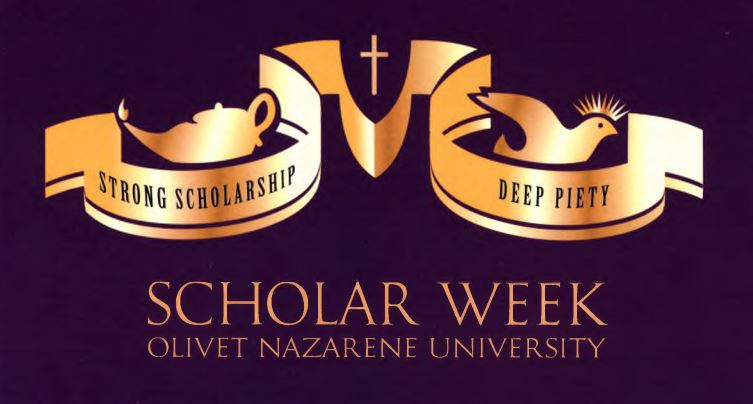Faculty Mentor(s)
Dr. Heather McLaughlin
Project Type
Honors Program project
Scholarship Domain(s)
Scholarship of Discovery
Presentation Type
Presentation
Abstract
BACKGROUND: Mask-wearing was a controversial and polarizing phenomenon during the COVID-19 pandemic. Beliefs concerning mask-wearing differed, depending on sources of information concerning the pandemic, levels of health literacy, political leaning, demographics, or other factors. This project attempted to connect college students’ level of health literacy to their understanding of and adherence to mask-wearing in the COVID-19 pandemic. There is a gap in research connecting health literacy to understanding information concerning pandemics, and an even bigger lack of studies conducted that relate college students’ health literacy to their perception of illnesses or pandemics. It is important to understand the impact of public health literacy on intake of information about illnesses and pandemics for future health crises to avoid polarization and the spread of misinformation.
METHODS: An IRB-approved qualitative survey was sent to the entire student population of Olivet Nazarene University consisting of three sections: evaluation of health literacy, knowledge and adherence to masks-wearing, and demographics and psychographics. The survey received 262 responses over three weeks. Out of the 262 responses, 234 qualified for analysis. The results were compiled into a coded spreadsheet and R-studio was used to draw correlations.
RESULTS: 219 students were evaluated as having “adequate” health literacy, and among those students twenty were determined to have a “correct” level of knowledge of and attitude toward mask-wearing. Twelve students were evaluated as likely having limited health literacy and three students as most likely having limited literacy. Females were more likely to wear masks than males, and Democrats and Independents were more likely to wear masks than Republicans. Of students who with adequate health literacy, most obtained information about the pandemic through the internet, news websites and apps, and social media, and students who had a likelihood of having limited health literacy obtained most of their information from social media and the internet.
CONCLUSION: Health literacy did not have a statistically significant impact on a college student’s perception of mask-wearing in the COVID-19 pandemic. Sources of information like social media were more used by students with low to limited health literacy, whereas the internet and news websites and apps were consulted more by students with a higher level of health literacy. The implications of these results show that the public’s level of health literacy may have little to no impact on polarization and controversy surrounding the pandemic.
Permission Type

This work is licensed under a Creative Commons Attribution-Noncommercial-No Derivative Works 4.0 License.
Included in
Evaluating College Students’ Health Literacy and Its Effects on Their Perceptions of Information Concerning Mask-Wearing in the COVID-19 Pandemic
Fishbowl
BACKGROUND: Mask-wearing was a controversial and polarizing phenomenon during the COVID-19 pandemic. Beliefs concerning mask-wearing differed, depending on sources of information concerning the pandemic, levels of health literacy, political leaning, demographics, or other factors. This project attempted to connect college students’ level of health literacy to their understanding of and adherence to mask-wearing in the COVID-19 pandemic. There is a gap in research connecting health literacy to understanding information concerning pandemics, and an even bigger lack of studies conducted that relate college students’ health literacy to their perception of illnesses or pandemics. It is important to understand the impact of public health literacy on intake of information about illnesses and pandemics for future health crises to avoid polarization and the spread of misinformation.
METHODS: An IRB-approved qualitative survey was sent to the entire student population of Olivet Nazarene University consisting of three sections: evaluation of health literacy, knowledge and adherence to masks-wearing, and demographics and psychographics. The survey received 262 responses over three weeks. Out of the 262 responses, 234 qualified for analysis. The results were compiled into a coded spreadsheet and R-studio was used to draw correlations.
RESULTS: 219 students were evaluated as having “adequate” health literacy, and among those students twenty were determined to have a “correct” level of knowledge of and attitude toward mask-wearing. Twelve students were evaluated as likely having limited health literacy and three students as most likely having limited literacy. Females were more likely to wear masks than males, and Democrats and Independents were more likely to wear masks than Republicans. Of students who with adequate health literacy, most obtained information about the pandemic through the internet, news websites and apps, and social media, and students who had a likelihood of having limited health literacy obtained most of their information from social media and the internet.
CONCLUSION: Health literacy did not have a statistically significant impact on a college student’s perception of mask-wearing in the COVID-19 pandemic. Sources of information like social media were more used by students with low to limited health literacy, whereas the internet and news websites and apps were consulted more by students with a higher level of health literacy. The implications of these results show that the public’s level of health literacy may have little to no impact on polarization and controversy surrounding the pandemic.


